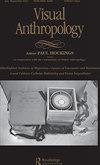民族志电影(仍然)重要吗?多模态世界对文学体裁的思考
IF 0.3
Q3 ANTHROPOLOGY
引用次数: 1
摘要
近一个世纪以来,民族志电影制作人喜欢将他们的作品视为对墨守成规的文本人类学的激进替代。这种说法现在越来越受到质疑。一方面,“实验”或“多模式”学术的兴起改变了现有的关于人类学实践替代模式的辩论条件。另一方面,关于该学科非殖民化(或去殖民化)的辩论突显了民族志电影传统传统叙事中长期存在的问题。民族志电影的未来是什么?它现在是一种过时的形式,被取代还是被吸收到更广泛、更多样的多模式人类学类别中?或者,是否有理由保留其作为一种调查模式的独特性?本文章由计算机程序翻译,如有差异,请以英文原文为准。
Does Ethnographic Film (Still) Matter? Reflections on the Genre in a World of Multimodality
For almost a century ethnographic filmmakers liked to think of their work as the radical alternative to a hidebound textual anthropology. Such claims are now increasingly challenged. On the one hand, the rise of “experimental’ or “multimodal” scholarship has changed the existing terms of debate about alternative modes of anthropological practice. On the other hand, debates about the decolonization (or decanonization) of the discipline have served to underline long-standing problems in conventional narratives of the tradition of ethnographic film. What is the future for ethnographic film? Is it now an obsolete form, superseded or absorbed into the broader and more diverse category of multimodal anthropology? Or is there a case to be made for retaining its distinctiveness as a mode of inquiry?
求助全文
通过发布文献求助,成功后即可免费获取论文全文。
去求助
来源期刊

Visual Anthropology
ANTHROPOLOGY-
CiteScore
1.00
自引率
50.00%
发文量
19
期刊介绍:
Visual Anthropology is a scholarly journal presenting original articles, commentary, discussions, film reviews, and book reviews on anthropological and ethnographic topics. The journal focuses on the study of human behavior through visual means. Experts in the field also examine visual symbolic forms from a cultural-historical framework and provide a cross-cultural study of art and artifacts. Visual Anthropology also promotes the study, use, and production of anthropological and ethnographic films, videos, and photographs for research and teaching.
 求助内容:
求助内容: 应助结果提醒方式:
应助结果提醒方式:


